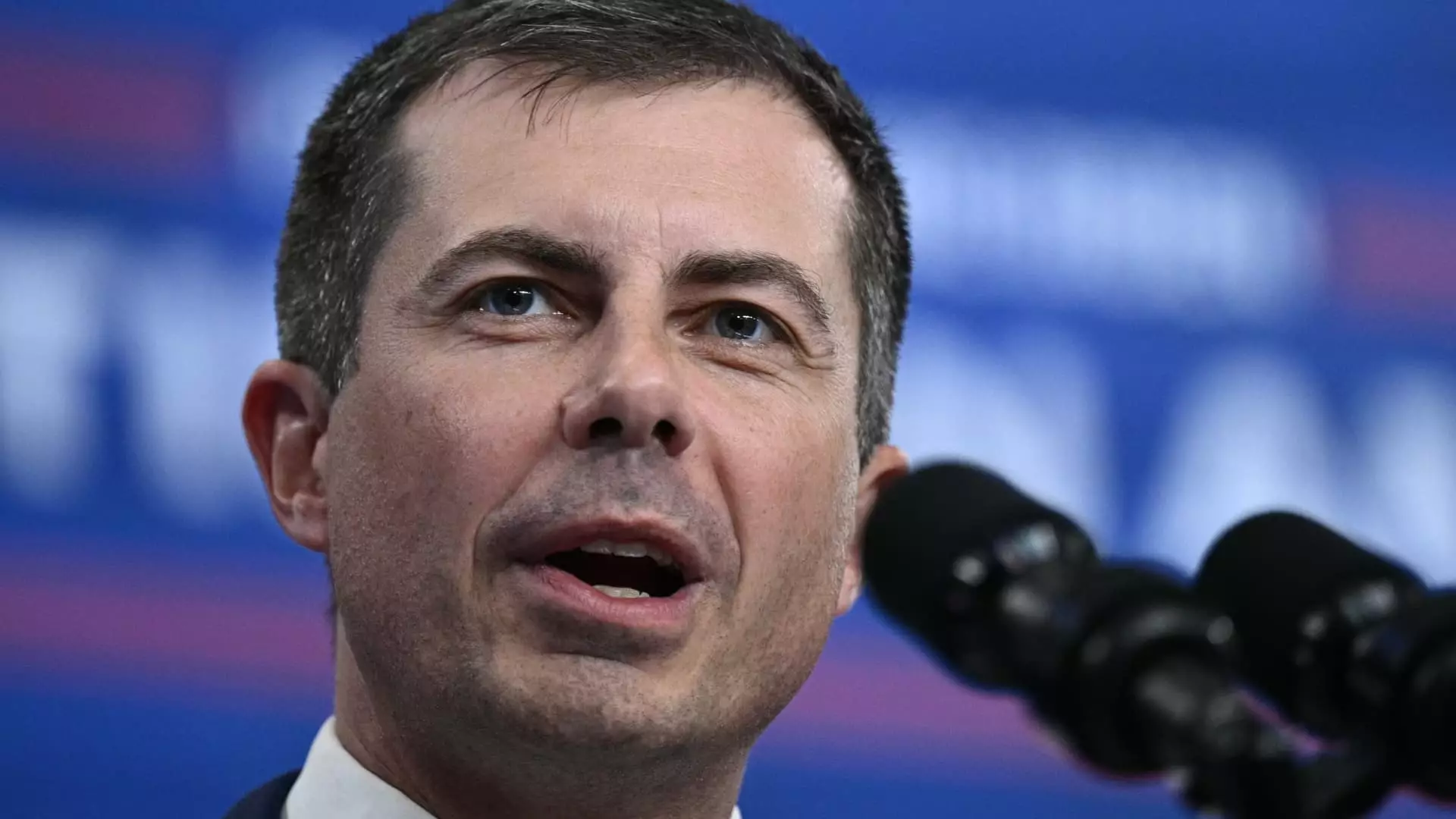In a remarkable instance of social media sparring, Transportation Secretary Pete Buttigieg found himself directly engaging with billionaire entrepreneur Elon Musk on the platform X (formerly Twitter). This confrontation stemmed from Musk’s unfounded claims regarding federal disaster aid related to Hurricane Helene. The airspace over the disaster zone, Musk alleged, was being shut down by the Federal Aviation Administration (FAA), leading to dangerous impediments for rescue flights. The public nature of this exchange illustrates both the influence of celebrity voices in shaping public discourse and the critical responsibility that comes with such prominence.
Buttigieg’s response was both pointed and public, dispelling Musk’s assertions by stating, “No one is shutting down the airspace and FAA doesn’t block legitimate rescue and recovery flights.” By addressing Musk directly, Buttigieg highlighted the urgency of accurate information in times of crisis. The Transportation Secretary’s offer for direct communication further reinforces the lack of barriers between government officials and prominent figures—demonstrating an eagerness to clarify misinformation, particularly when it involves the lives of those affected by natural disasters.
Musk’s claims were not isolated. They formed a part of a broader trend of disinformation that spread rapidly on social media, especially amid the chaos of a natural disaster. As federal agencies scramble to provide assistance to those impacted by Hurricane Helene, the prevalence of false narratives, such as Musk’s assertion that the Federal Emergency Management Agency (FEMA) was obstructing aid, can significantly undermine public trust and hinder effective response efforts. News outlets, including CNBC, promptly reported FAA’s clarification concerning the lack of airspace restrictions, yet the rapid dissemination of Musk’s misleading statements may have already set off alarm bells among the public.
In this context of information warfare, Musk’s prior criticisms of government agencies resonate with his more extensive campaign against regulatory oversight, often positioning himself and his companies as champions of free enterprise. His recent public endorsements of political figures, notably former President Donald Trump, further complicate the narrative, bringing the weight of partisan politics into an arena where the welfare of citizens should trump ideological divides.
Musk’s actions illuminate a larger societal issue: how social media shapes and sometimes distorts the flow of information during critical situations. With over 200 million followers on X, Musk leverages his platform to share and amplify opinions that can have a profound impact on public perception. Buttigieg’s intervention—rooted in a need for transparency—underscores the importance of authoritative voices in countering misinformation. The incident serves as a case study of the hazards and responsibilities that come with mass communication in the digital age.
Moreover, Musk’s proclivity for controversy has become a hallmark of his social media presence. His tactics often blur the lines between engagement and misinformation. Through his online conduct, Musk not only provokes debate but also complicates the already challenging landscape for government efforts in disaster recovery. The interplay between Musk’s private business interests and his public persona as a tech visionary frequently leads to questions about his motives and the implications of his statements.
Musk’s public trust has been contentious, particularly given his significant financial support for the Republican Party and his positioning alongside figures like Trump. When mainstream politicians amplify misinformation, such as Trump sharing Musk’s inaccuracies about FEMA on Truth Social, the validity of governmental institutions can be increasingly called into question. This dynamic ultimately exacerbates the difficulties that agencies like FEMA face in carrying out their essential mission.
Despite the controversies, Musk’s companies have positioned themselves as critical players in disaster recovery efforts. Initiatives like donating Starlink kits and providing free internet access in storm-affected regions are laudable. However, the juxtaposition of these charitable gestures with Musk’s public disparagement of agencies that coordinate such efforts leads one to ponder their consistency and authenticity.
As social media continues to transform the landscape of public communication, the responsibility of prominent figures to share accurate information becomes ever crucial. Buttigieg’s direct engagement with Musk illustrates a proactive approach to mitigating misinformation. As citizens increasingly turn to social platforms for information during emergencies, it is vital that narrative control be taken seriously and that institutions work collaboratively with influential voices to ensure public safety and trust. Moving forward, a robust dialogue between government entities and private figures may serve as a necessary bridge in fostering a more responsible and informed public discourse, particularly in times of crisis.


Leave a Reply